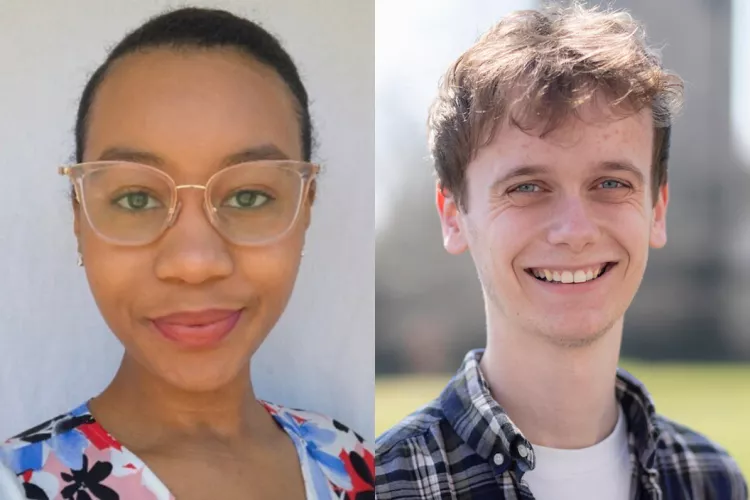Mikayla Purnell ’22 and Edward Tranter ’22 to Embark on Coveted Watson Fellowships

What would you do if you were replaced by a robot?
That’s the question Edward Tranter ’22 will explore next year as a Watson Fellow, traveling the world to gauge the impact of automation on low-income communities.
“The fact that the news about automation focuses largely on economics has troubled me,” says Tranter, an honors political science major from Great Britain. “The narrative of the future of artificial intelligence will be based on the human implications as much as material progress."
“Without enough emphasis on the former,” Tranter adds, “the fruits of the latter will never be fully realized.”
Also embarking on a Watson Fellowship next year is Mikayla Purnell ’22. Her project, titled “Documenting the Vibrance of Black Joy,” will entail researching and experiencing the cultural traditions of Trinidad and Tobago, Brazil, Nigeria, and Colombia.
“Afro-heritage festivals are critical venues where Black communities express their identities,” notes Purnell, an economics and Black studies special major from Wilmington, Del. “Why and how do people continue to rejoice in these contexts, even as they process the past and current realities of anti-Blackness?”
Each year, The Watson Foundation offers graduating seniors the opportunity to engage in one year of self-designed, independent study, aimed to “enhance their capacity for resourcefulness, imagination, openness, and leadership, and foster their humane and effective participation in the world community.” The foundation provides fellows a one-year stipend of $36,000, among other support.
Tranter and Purnell join students from 21 states and eight countries in representing the 54th class of fellows. They will travel to 73 countries to pursue topics from automation to pollination; from architectural heritage to compulsory voting; from community science to youth incarceration, and activist filmmaking to eldercare.
Tranter will visit India, Australia, South Korea, France, and the Netherlands, meeting with firms, researchers, and policymakers on the cutting edge of artificial intelligence. But the core of his project will be speaking directly to workers in low-income communities who are facing the impacts of automation.
“Hearing what they actually have to say, their hopes and fears — that’s my aim,” says Tranter.
A first-generation college student, Tranter was involved in Swarthmore’s International Student Center, and became one of the program’s leaders in his sophomore year. He also served as a resident advisor on campus and worked with the Center for Innovation and Leadership (CIL).
Purnell is a McCabe Scholar, and participated in an array of activities, including her roles as a diversity peer advisor (DPA), an executive board member of Swarthmore African American Student Society (SASS), a grantee with the Lang Center for Civic & Social Responsibility, a member of the CIL’s San Francisco trip cohort in 2019, a fellow of the Redefine Her Street chapter, and as a member of the Our Art Spoken in Soul (OASiS) and Aja student groups.
“Several of my interests include community building, self-care, and youth empowerment,” she says. “I enjoy investing my time in helping peers scale the impacts of transformative community initiatives.”



